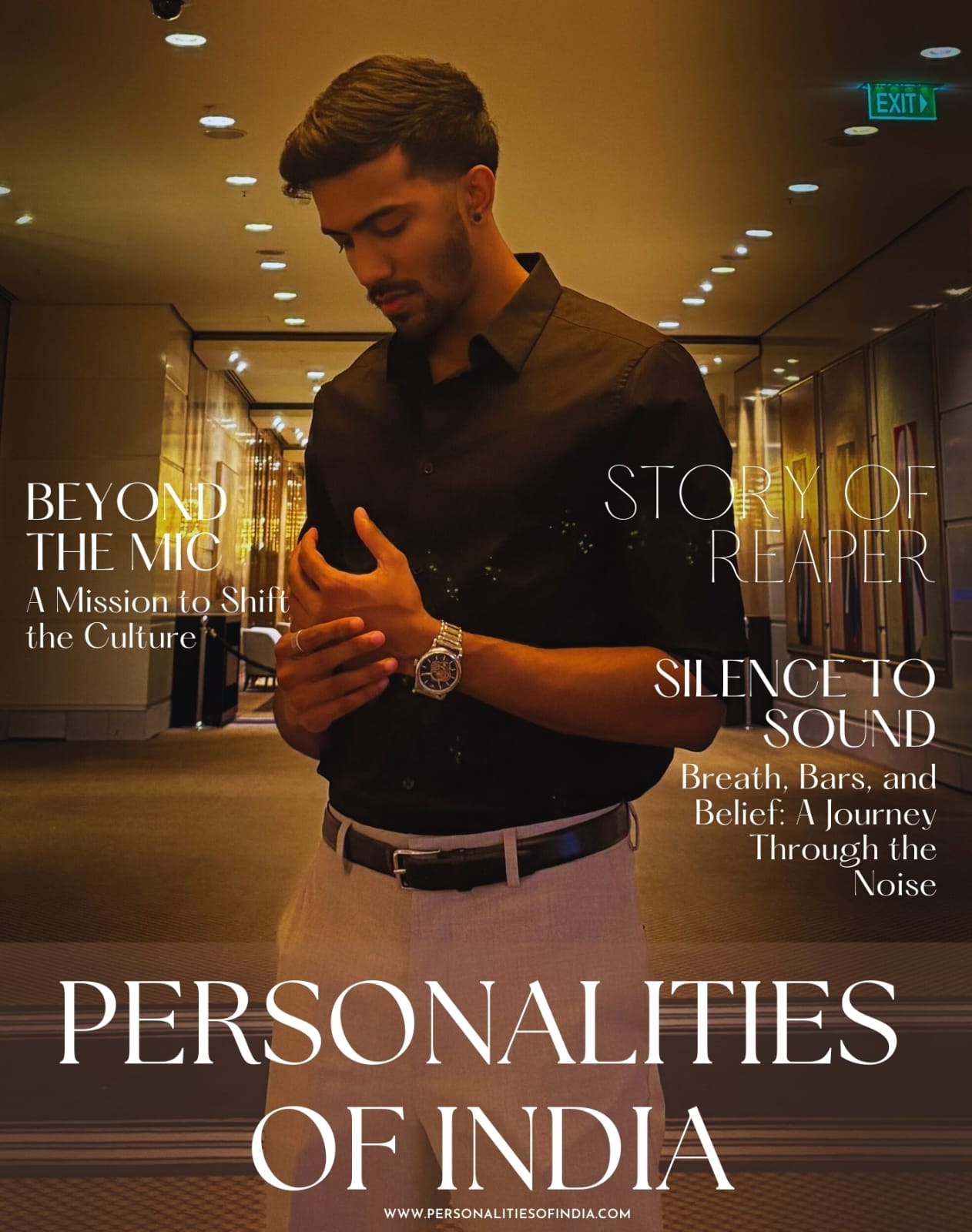A Mission to Shift the Culture
It all started with rhythm. I was 12 when I got into beatboxing—just me, my breath, and a mic. No fancy gear, no mentor, no audience. Just raw sound and the feeling that, for once, I had control. Growing up between Bangalore and Goa, life was a mash-up of contrasts. Beauty and chaos. Pressure and freedom. I didn’t always know how to make sense of it all, but I knew how to feel it—and I turned that energy into sound.
Beatboxing quickly became more than a hobby. It took me to local competitions, beat battles, and eventually judging panels. That was my world. But even when I was winning those events, I was writing lyrics for other artists on the side. Quietly. Anonymously. I was helping shape other people’s voices while still searching for my own.

My background wasn’t easy. I came up in a world where success meant stability, education, and ticking all the “right” boxes. But I didn’t fit into that mold, no matter how hard I tried. The more I suppressed that truth, the more restless I became. Music wasn’t just a passion anymore. It was therapy. It was purpose. And that’s when Reaper was born.
For me, becoming Reaper wasn’t about creating a persona—it was about reclaiming my power. It meant betting on myself in a world that didn’t make space for dreams like mine.
One of the hardest parts of this journey wasn’t getting people to listen. It was convincing myself that I deserved to be heard.
Choosing music in a household that valued education and “secure” careers felt like walking a tightrope with no safety net. The pressure to chase a traditional path was real. There were no studio budgets. No viral moments. No team. Just me, my basic gear, and a whole lot of hunger.
There were nights I’d drop a song and it wouldn’t even crack 100 plays. That kind of silence is loud. It messes with your head. I’d wonder if any of this mattered. But every time I reached that edge, I’d come back to why I started. I wasn’t doing this for clout. I was doing it because it healed me. Because it made sense of everything I couldn’t explain.
So I kept going. I kept writing. Kept recording. Kept releasing. Even when no one clapped. Even when it felt like I was shouting into the void.
The turning point came when I stopped comparing my journey to everyone else’s and started building one listener at a time. That shift in mindset changed everything. Every bar I wrote, every gig I did with my brother Akhil OSO, became a brick in the foundation.
Performing at local bars and socials with him—those nights changed me. They weren’t big venues. There were no flashing lights. Just real people and raw connection. That’s where I learned how to own a stage. How to turn strangers into fans.
I started DJing, too. Hosting my own events. Curating experiences. I began to fall in love with the culture beyond just the mic. The rhythm, the crowd, the energy—it gave me a whole new dimension to explore. Now it’s not just about rapping. It’s about sound. About building a movement.
People see the stage now, but they don’t see the behind-the-scenes. The nights I couldn’t afford studio time. The DIY setups. The moments of doubt that crept in when others were blowing up and I was still fighting for 1,000 views.
What kept me grounded was the circle around me—and the voice inside me. Akhil OSO has been a huge part of that. A brother, a collaborator, and one of the few people who always reminded me why I started.
And even through the struggle, I started stacking wins.
From winning beatboxing competitions across Bangalore and Goa at 12 to sitting on judging panels later on—those moments reminded me that I was building something real. Dropping my own tracks on Spotify, YouTube, and major platforms was a milestone I’ll never forget. It wasn’t just about putting music out there. It was about claiming space. Finally.
Now, moving to Australia has opened up a whole new chapter for me. It’s a clean slate—and a chance to level up. I’m dropping consistent music, pushing my sound, and experimenting with textures that go beyond genre. I want every drop to be a statement. Every verse to be a timestamp.
But it’s not just about my journey anymore. As Reaper evolves, so does the mission.
I want to build more than a brand—I want to build bridges. I want to be the artist who opens doors for others while kicking down my own. Whether it’s adding local talent to my lineups, collaborating across cultures, or giving the mic to someone new, I’m here to make space.
I see myself curating platforms—digital and real—where underground voices don’t just exist, they thrive. Where being different isn’t just allowed, it’s the point. Where visuals and lyrics tell real stories, not just flexes.
The long-term vision? A collective. A label. A movement. One that gives kids like the younger me a mic, a path, and the confidence to speak—even when the room is quiet.
Right now, I’m focused. Dialed in. Sharpening the craft. Telling my story louder, clearer, with no filters.
Because Reaper isn’t just here to rap.
I’m here to shift the culture.